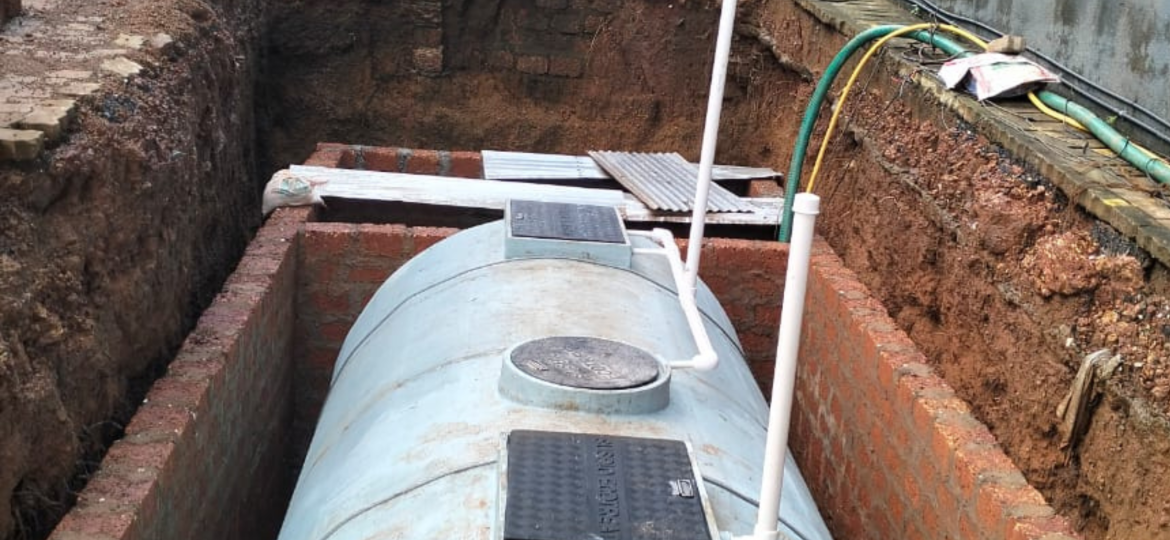
In an increasingly urbanized world, access to clean and safe water is more critical than ever. Water is essential for life, health, and well-being, but with rising pollution levels and inadequate wastewater management, maintaining water quality has become a significant challenge. Clean water is not just a necessity for drinking and sanitation but is crucial for the environment, agriculture, and industrial processes. The importance of ensuring clean water cannot be overstated, and effective sewage treatment plays a pivotal role in achieving this goal.

The Importance of Sewage Treatment Plants (STPs) for Clean Water and Public Health
Sewage Treatment Plants (STPs) play a vital role in maintaining clean water, preventing disease, and promoting sustainability. The importance of sewage treatment plants lies in their ability to safely treat wastewater and protect public health.
1. Public Health Benefits: Preventing Waterborne Diseases
STPs help remove harmful pathogens from wastewater, preventing waterborne diseases like cholera and typhoid. Properly treated water reduces the risk of disease outbreaks, ensuring clean, safe water for communities.
2. Types of STPs: Tailored Solutions for Different Needs
STPs come in various types, including:
- Septic Tanks for small residential areas.
- SBR Systems for industrial applications.
- Membrane Bioreactors for large-scale or municipal needs. Each type is designed for specific wastewater treatment requirements.
3. Economic and Community Benefits
Investing in STPs leads to long-term cost savings by reducing healthcare expenses and enabling water reuse for irrigation and industrial processes. They also promote sustainable growth in urban and industrial settings by effectively managing wastewater.
4. Technological Innovations in STPs
Modern STPs utilize advanced technologies like UV disinfection, solar power, and membrane filtration, which improve efficiency and reduce operational costs, ensuring an eco-friendly and sustainable solution.
The Importance of Clean Water
Clean water is fundamental to human health. Contaminated water can lead to a host of health issues, including waterborne diseases such as cholera, dysentery, and hepatitis. Moreover, access to clean water is essential for hygiene, preventing the spread of diseases, and maintaining overall well-being. Beyond personal health, clean water is vital for agriculture, supporting crop growth, and ensuring food security. For industrial processes, it is necessary for operations and cooling systems, impacting productivity and efficiency.
How to Avoid Water Pollution
Water pollution is one of the most pressing environmental challenges of our time, threatening the health of ecosystems, communities, and economies worldwide. Preventing water pollution requires collective effort, proactive measures, and sustainable practices including effective wastewater treatment system. Here’s a detailed guide on how to avoid water pollution and protect our precious water resources.
1. Proper Waste Disposal
One of the primary sources of water pollution is the improper disposal of waste. To prevent harmful substances from entering water bodies, follow these guidelines:
- Household Waste: Never dispose of hazardous household products like paints, chemicals, or cleaning agents down the drain. Instead, take them to a hazardous waste disposal facility.
- Pharmaceuticals: Avoid flushing medications down the toilet or sink. Many communities have drug take-back programs that safely dispose of unused or expired medicines.
- Solid Waste: Properly dispose of solid waste such as plastic, paper, and food scraps. Littering can lead to debris entering waterways, contributing to pollution and harming aquatic life.
2. Implementing Efficient Sewage Management
Effective sewage management is crucial for preventing water pollution. Here’s how to ensure your sewage systems contribute positively to the environment:
- Install Sewage Treatment Plants (STPs): STPs treat wastewater before it is released into the environment, removing harmful contaminants and reducing the risk of pollution. Invest in modern and efficient systems like SUSBIO ECOTREAT to ensure that your wastewater is treated to the highest standards.
- Regular Maintenance: Ensure that sewage systems and septic tanks are regularly inspected and maintained. Leaks and overflows can lead to untreated sewage contaminating local water sources.
- Avoid Overloading Systems: Do not overload sewage systems with non-biodegradable items or excessive waste, as this can lead to blockages and spills.
3. Reducing Industrial Runoff
Industrial runoff is a major contributor to water pollution, especially from sectors like manufacturing, agriculture, and construction. Companies and individuals can take the following steps to minimize the impact:
- Use Eco-Friendly Products: Opt for biodegradable and environmentally safe chemicals in industrial processes to reduce the potential for harmful runoff.
- Implement Best Management Practices (BMPs): Incorporate BMPs like proper waste storage, spill containment systems, and sediment control measures to prevent pollutants from entering water bodies.
- Stormwater Management: Install systems to capture and treat stormwater runoff, which can carry pollutants from industrial sites into rivers, lakes, and oceans.
4. Sustainable Agricultural Practices
Agriculture is another significant source of water pollution, particularly due to runoff containing pesticides, fertilizers, and animal waste. To mitigate this:
- Reduce Pesticide and Fertilizer Use: Use organic farming methods and integrated pest management (IPM) techniques to minimize the use of chemical pesticides and fertilizers. Precision agriculture can help apply the exact amount of nutrients needed, reducing excess runoff.
- Implement Buffer Zones: Establish buffer zones with vegetation between farmland and water bodies. These areas help filter out pollutants before they reach the water.
- Proper Waste Management: Ensure that animal waste is managed and stored correctly, preventing it from washing into nearby streams and rivers during rainfall.
5. Conserving Water
Water conservation is a key strategy in reducing pollution. By using less water, you reduce the amount of wastewater that needs to be treated and the likelihood of runoff:
- Fix Leaks: Repair leaky faucets, pipes, and toilets to prevent wasted water from turning into potential pollutants.
- Install Water-Efficient Fixtures: Use low-flow toilets, showerheads, and faucets to reduce water consumption and the volume of wastewater produced.
- Recycling Water: Implement greywater recycling systems and well water treatment systems to reuse water from sinks, showers, and laundry for irrigation or other non-potable uses.
6. Public Awareness and Education
Educating communities about the importance of preventing water pollution is essential for long-term success. Encourage responsible behaviors through:
- Community Programs: Organize local clean-up events, educational workshops, and public campaigns to raise awareness about water pollution and its effects.
- School Education: Introduce water conservation and pollution prevention into school curriculums, teaching children the importance of protecting water resources from a young age.
- Collaborative Efforts: Work with local governments, businesses, and environmental organizations to promote water-friendly practices and policies.
7. Protecting Natural Water Sources
Preserving natural water sources, such as rivers, lakes, and wetlands, plays a critical role in maintaining water quality. Here’s how to help:
- Support Conservation Efforts: Participate in or donate to conservation projects that focus on protecting and restoring natural water bodies.
- Responsible Land Use: Encourage land use practices that minimize deforestation, wetland destruction, and soil erosion, all of which can lead to increased sediment and pollutants in water.
- Habitat Restoration: Support or engage in efforts to restore habitats, such as replanting trees along riverbanks and restoring wetlands, which can naturally filter pollutants.
8. Legislative and Policy Support
Advocating for and supporting policies that protect water quality is essential for long-term water pollution prevention:
- Support Strong Environmental Regulations: Advocate for laws and regulations that limit pollution, require wastewater treatment, and protect natural water sources.
- Encourage Corporate Responsibility: Promote policies that hold businesses accountable for their environmental impact, encouraging them to adopt sustainable practices.
- Participate in Local Governance: Engage in local government meetings and decision-making processes related to water management, ensuring that community voices are heard in the development of water protection policies.
9. Reduce Plastic Use
Plastic pollution is a significant contributor to water pollution, particularly in oceans and large water bodies:
- Reduce, Reuse, Recycle: Cut down on single-use plastics by opting for reusable alternatives. Participate in recycling programs to ensure that plastics are properly disposed of.
- Participate in Clean-Ups: Join community efforts to clean up local water bodies, beaches, and rivers. Removing plastic waste from these areas helps prevent it from breaking down into microplastics that pollute the water.
- Support Plastic Bans: Advocate for bans or restrictions on single-use plastics, particularly in areas where they pose a significant environmental threat.
How Sewage Treatment Plants Reduce Water Pollution:
- Preliminary Treatment:
- Function: Removes large debris and solids (such as plastics, leaves, and sand) through screening and grit chambers.
- Impact on Water Pollution: Prevents large objects from clogging equipment and allows further treatment to be more effective.
- Primary Treatment:
- Function: Settles out suspended solids through gravity (sedimentation).
- Impact on Water Pollution: Reduces the amount of sludge and organic solids in the water, thus lowering the overall pollutant load.
- Secondary Treatment (Biological Treatment):
- Function: Microorganisms degrade organic matter in the water.
- Impact on Water Pollution: Significantly reduces Biochemical Oxygen Demand (BOD) and Chemical Oxygen Demand (COD), which are indicators of water pollution.
- Tertiary Treatment (Advanced Treatment):
- Function: Removes remaining contaminants like fine solids and pathogens through processes like filtration, chlorination, or UV treatment.
- Impact on Water Pollution: Ensures that the water is free of harmful microorganisms, making it safe for discharge or reuse.
- Sludge Treatment and Disposal:
- Function: Treats and processes the leftover sludge through dewatering, composting, or incineration.
- Impact on Water Pollution: Proper sludge management prevents it from contaminating the environment and causing further pollution.
The Role of Sewage Treatment Plants (STPs)
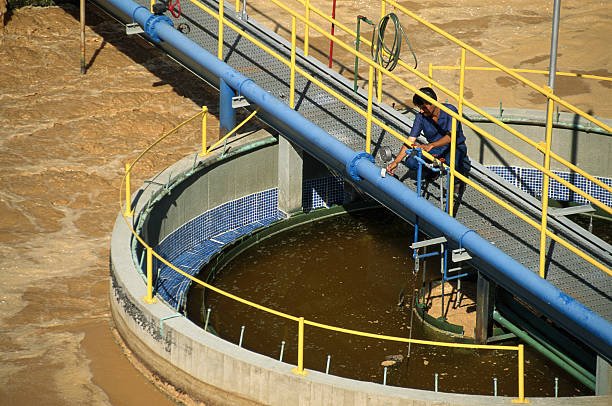
Sewage treatment plants (STPs) are essential for managing wastewater and ensuring that it does not negatively impact water quality, or contribute to domestic sewage water pollution. STPs work by removing contaminants from sewage and industrial effluent, converting it into safe, clean water that can be released back into the environment or reused.
STP Sewage Treatment Plant Cleaning: Essential for Efficiency
Regular STP sewage treatment plant cleaning is crucial for maintaining optimal performance. Here’s why:
- Prevents Blockages: Cleaning removes sludge and waste buildup, preventing clogs and ensuring smooth wastewater flow.
- Reduces Odors: Regular cleaning eliminates waste accumulation, preventing unpleasant smells and maintaining a clean environment.
- Boosts Performance: Keeping filters and tanks clean improves the treatment process and ensures effective wastewater management.
- Extends Lifespan: Routine cleaning reduces wear and tear, protecting the system and saving on costly repairs.
STP sewage treatment plant cleaning is key to a functional, efficient, and long-lasting system, ensuring safe and clean water throughout the sewage treatment process.
Why You Need an STP:
Preventing Water Pollution: STPs effectively remove harmful substances from wastewater, reducing the risk of pollution and protecting water bodies from contamination.
Enhancing Public Health: By treating sewage properly, STPs prevent the spread of waterborne diseases and contribute to a healthier community.
Environmental Protection: Proper treatment of wastewater helps maintain the ecological balance of rivers, lakes, and other water bodies, preserving natural habitats and biodiversity.
Regulatory Compliance: Many regions have stringent regulations regarding wastewater discharge. An effective STP ensures compliance with these regulations, avoiding legal issues and fines.
Sustainable Water Management: Advanced STPs, such as the SUSBIO ECOTREAT, offer efficient and sustainable solutions for wastewater management, helping to conserve water resources and support environmental sustainability.
Why Choose SUSBIO ECOTREAT?

Dual Treatment Process
The SUSBIO ECOTREAT employs a dual treatment process that significantly enhances its efficiency and effectiveness. This process combines biological and chemical treatment methods to handle a wide range of wastewater types. The first stage involves biological treatment, where microorganisms break down organic matter. In the second stage, chemical treatment is used to further purify the water, ensuring high-quality effluent that meets stringent environmental standards.
Prefabricated Design
One of the standout features of the SUSBIO ECOTREAT is its prefabricated design. The entire system is pre-engineered and assembled in our facility, which streamlines the installation process. This approach reduces on-site construction time and minimizes disruption, making it ideal for projects with tight deadlines or limited space.
Compact and Modular Structure
The compact and modular design of the SUSBIO ECOTREAT allows it to fit seamlessly into various environments, from small residential areas to large commercial or industrial sites. Its modularity also means that the system can be easily expanded or reconfigured to meet changing demands.
Energy Efficiency
The SUSBIO ECOTREAT is designed with energy efficiency in mind. It incorporates advanced technologies that minimize power consumption while maintaining optimal performance. This energy-efficient design helps reduce operational costs and supports our commitment to environmental sustainability.
Durability and Low Maintenance
Built with high-quality materials and robust engineering, the SUSBIO ECOTREAT is designed to withstand harsh conditions and provide long-term reliability. Its low maintenance requirements make it a cost-effective solution for wastewater treatment, reducing the need for frequent service and repairs.
User-Friendly Operation
The system features a user-friendly interface that simplifies operation and monitoring. Advanced control systems and automated processes ensure smooth operation, allowing users to manage the STP with minimal effort. Real-time monitoring capabilities provide valuable insights into system performance, helping to ensure consistent treatment quality.
Environmental Compliance
The SUSBIO ECOTREAT is engineered to comply with the latest environmental regulations and standards. Its advanced treatment processes ensure that the effluent meets or exceeds regulatory requirements, contributing to improved environmental protection and sustainability.
Where Can You Use SUSBIO ECOTREAT?
- Residential Projects: Perfect for housing developments, apartment complexes, and single-family homes, delivering reliable and efficient wastewater treatment for domestic use.
- Commercial Establishments: Ideal for hotels, shopping malls, office buildings, and restaurants, where high volumes of wastewater are managed seamlessly.
- Industrial Facilities: Robust enough to handle industrial wastewater from manufacturing and processing plants, ensuring efficient treatment in demanding environments.
- Municipal Applications: Suitable for small towns and communities, providing a reliable solution for local wastewater treatment needs.
Experience the Future of Sewage Treatment
In the quest for efficient and reliable sewage treatment, SUSBIO ECOTREAT emerges as the premier choice for a wide range of applications. As a leading prefabricated STP manufacturer and packaged STP manufacturing company in India, SUSBIO stands out for its commitment to delivering innovative solutions that meet the highest standards of performance and environmental compliance.
SUSBIO ECOTREAT embodies the best of modern technology with its advanced dual treatment process, combining biological and chemical methods to ensure the highest quality of treated effluent. Its energy-efficient design not only helps in reducing operational costs but also aligns with our dedication to sustainability and environmental responsibility.
Whether you are looking for a domestic STP for residential areas, a robust system for commercial use, or a sophisticated solution for industrial projects, SUSBIO ECOTREAT is designed to meet your needs with unmatched efficiency and reliability. Our system’s compact, modular structure and prefabricated design make it adaptable to various settings, from small residential complexes to large industrial facilities, ensuring seamless installation and minimal disruption.
As the best STP company in India and one of the top sewage treatment plant manufacturers in India, SUSBIO has earned its reputation through years of expertise and a customer-centric approach. Our products are designed to offer low maintenance and durability, ensuring long-term performance and peace of mind for our clients.
By choosing SUSBIO ECOTREAT, you are investing in a solution that not only meets the regulatory requirements but also sets a benchmark in sewage management. Our commitment to innovation and quality positions us as a top STP manufacturer and supplier in India, making us the ideal partner for all your wastewater treatment needs.
Experience the future of sewage treatment with SUSBIO ECOTREAT and see how our advanced technology and dedicated service can make a significant difference in managing your wastewater treatment effectively. For unparalleled performance and reliability, trust SUSBIO to deliver the best solutions for your sewage treatment challenges.



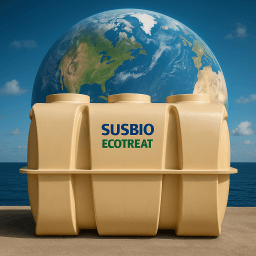




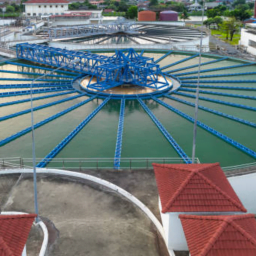
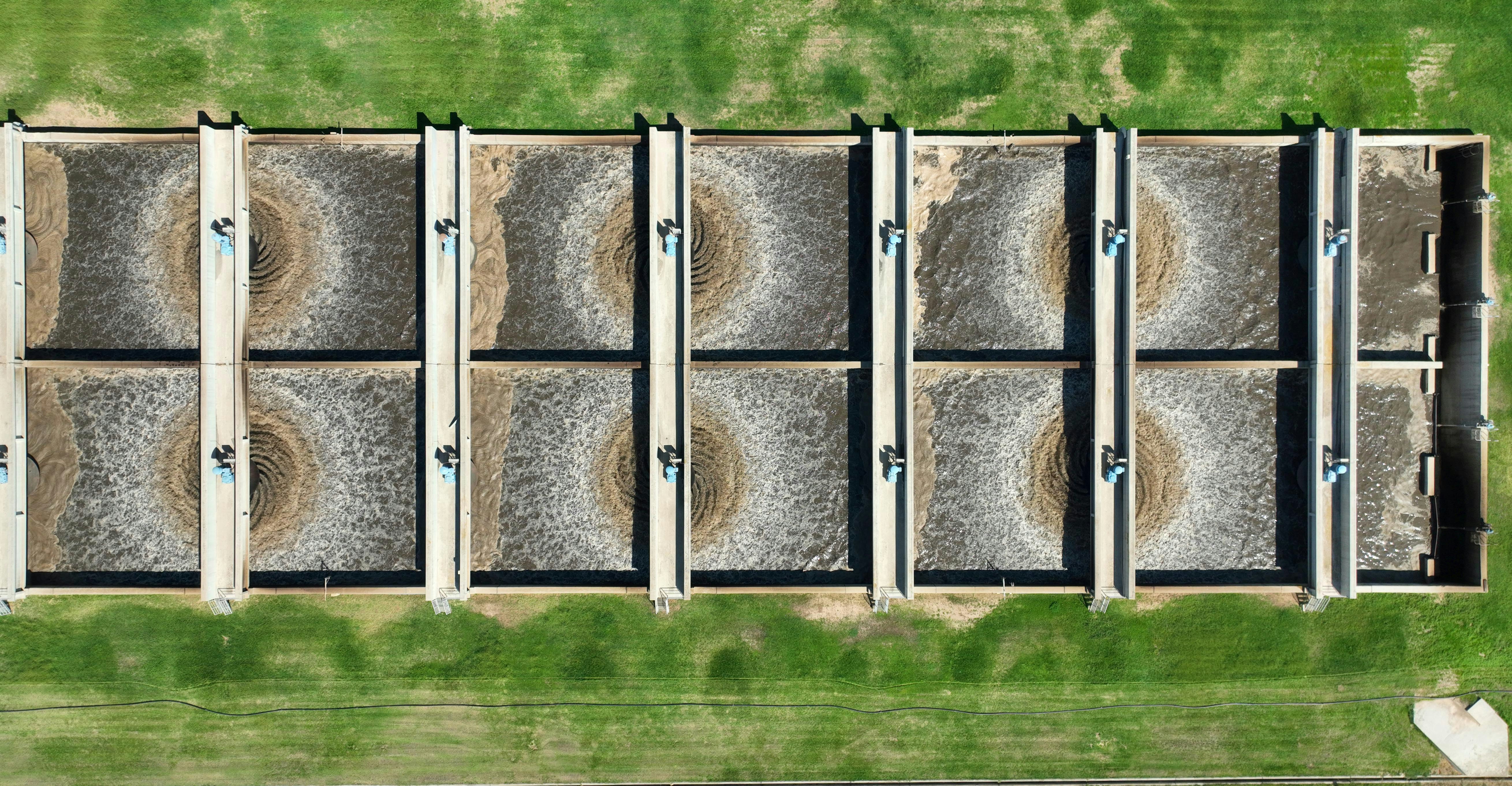
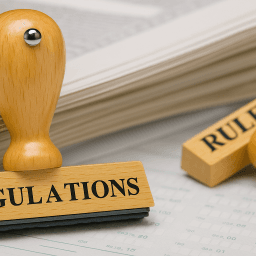
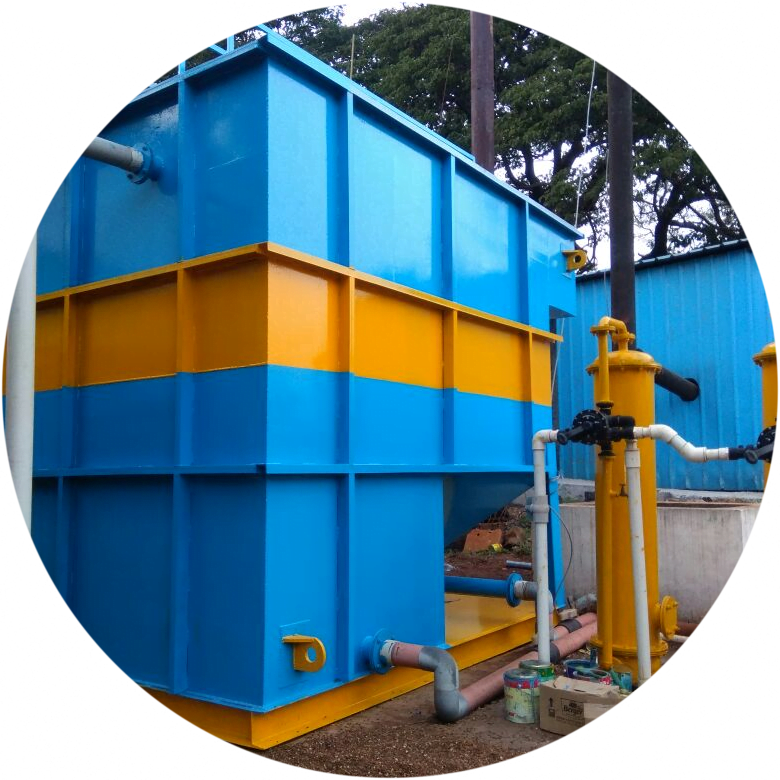
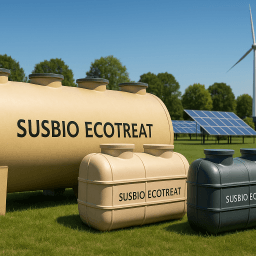
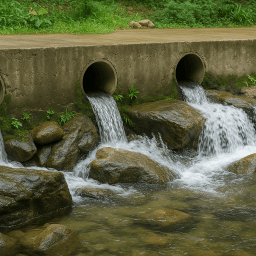

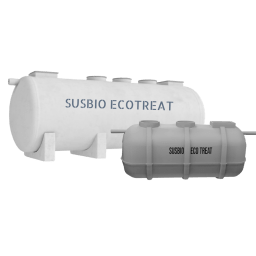

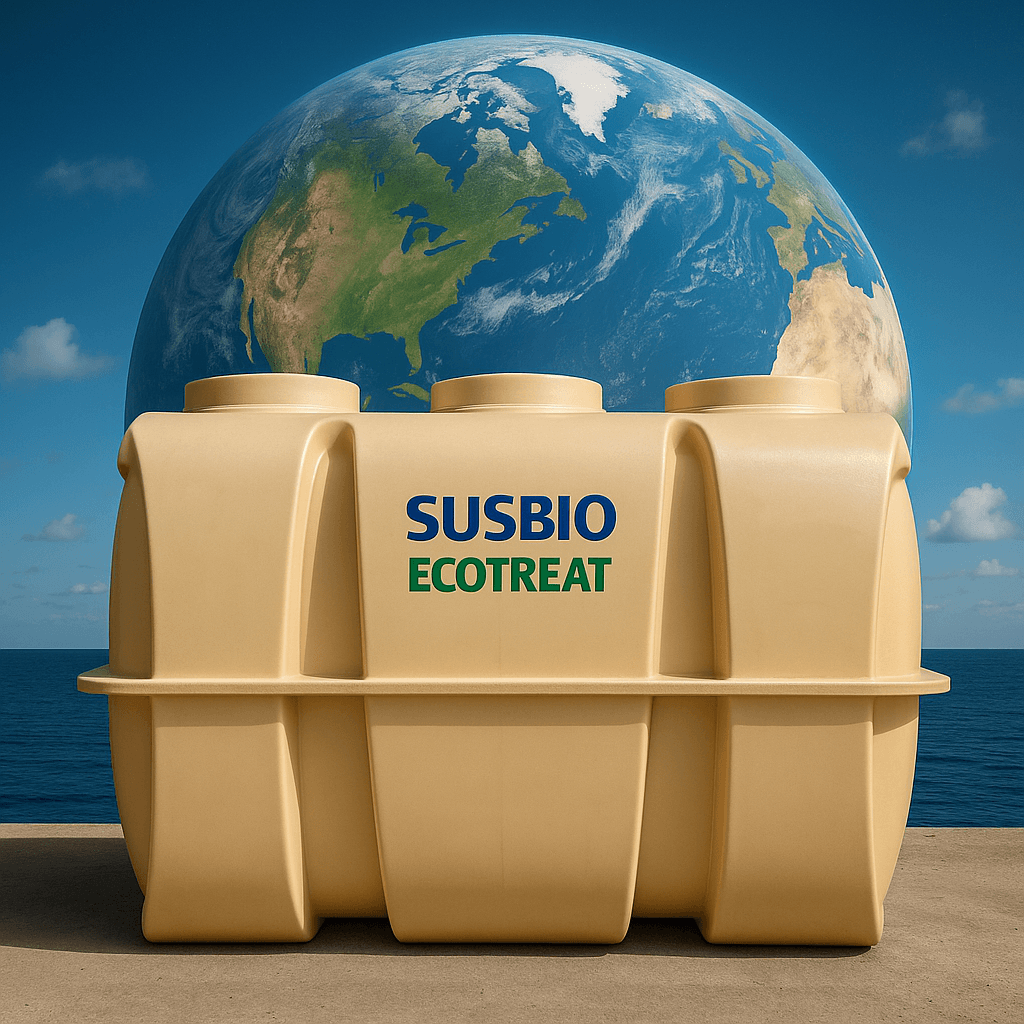
[…] 0 By Akshat Tyagi Latest Blogs August 13, […]
[…] Sewage treatment plants are essential for maintaining environmental health and ensuring safe water practices. These systems treat wastewater from households, industries, and commercial establishments, removing contaminants before discharging treated water back into the environment. With the growing need for sustainable solutions, Packaged Sewage Treatment Plants (PSTPs) have emerged as a revolutionary approach, offering numerous advantages over traditional sewage treatment plants. This blog is all about what PSTPs are, their importance, and how they outperform conventional systems, with a special focus on SUSBIO ECOTREAT, the best-packaged sewage treatment plant in India. […]
[…] conclusion, packaged sewage treatment plants offer a smart, efficient, and eco-friendly way to manage wastewater. With SUSBIO’s expertise […]
[…] In the field of wastewater treatment, choosing the right technology is critical for ensuring efficiency, cost-effectiveness, and compliance with environmental standards. Two prominent technologies used today are the Moving Bed Biofilm Reactor (MBBR) and SUSBIO ECOTREAT. While both systems are designed to treat wastewater, they have different features, advantages, and applications. This blog will provide a detailed comparison of these two technologies, highlighting why SUSBIO ECOTREAT stands out as the superior choice for a wide range of applications, including packaged sewage treatment plants and prefab STP systems. […]
[…] installing FRP packaged sewage treatment plants, developers can reduce their environmental impact, comply with […]